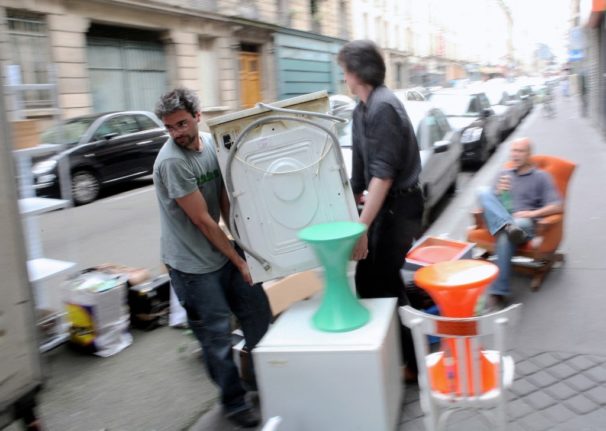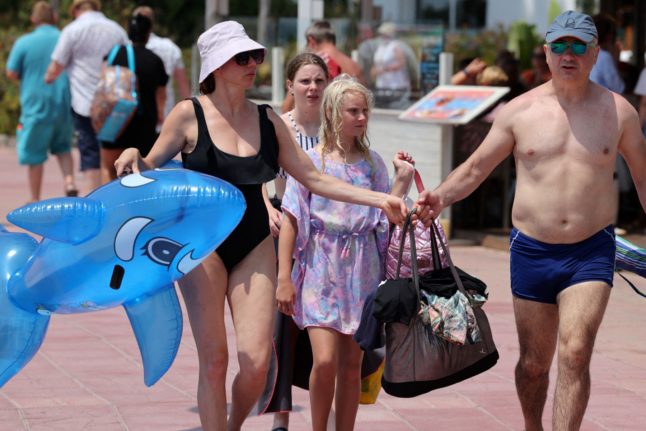“The withdrawal of the United Kingdom from the European Union has led to an increase in requests for customs exemptions and VAT exemptions for importing goods and personal belongings from UK citizens who are transferring their residence to Spain,” La Agencia Tributaria, Spain’s version of Inland Revenue, sums up in a press release from March 2021.
As a result, Spain’s tax agency has sought to clarify what the customs requirements are for British nationals importing goods to Spain from 2021 onwards, be it furniture, kitchen appliances or vehicles.
These are the main requirements they have to meet if they don’t want to pay duty on the goods they bring in.
Requirements
The British applicant must have lived outside the EU (including the UK) and customs union for at least 12 consecutive months before relocating to Spain.
These circumstances can be proven with “some” of the following documents according to Spain’s Tax Agency:
- Property purchase/sale or mortgage documents (escritura de compraventa o de constitución de hipoteca) if it’s accompanied by another document which shows that the acquired property was the applicant’s main residence.
- Proof of fiscal address (justificante de domicilio fiscal)
- The address that features on the person’s ID document
- Home insurance contracts in which it’s stated where the applicant’s main address is
- Electricity, phone, water or other utility bills or similar documents that show it’s the person’s permanent address.
- Proof on bank, insurance and other official documentation that feature the address that the applicant has marked as his or her usual place of residence.
The UK national has to be in the process or intending to move to Spain.
Britons going to Spain for study purposes are not included in the category and their move will not lead to an exemption from paying VAT on belongings they want to bring over.
Britons who have already obtained residency and are living in Spain can get their belongings over from the UK duty free as well, but they are only exempt from customs and VAT charges if they have been living legally as a resident in Spain for no more than 12 months.
The following documents have to be provided as proof of the UK person’s intention to move to Spain.
- A document showing that you’ve given up residency in a country outside the customs union, in this case the UK. Spain’s tax agency doesn’t give the exact name of the document they expect from Britons but says that if the foreign country doesn’t expedite any documents for the residency “baja” (cancellation) other documents that show the change of address (fiscal, health, pension or similar documents) will work.
- Proof of application for TIE residency card or proof of the residency document itself.

The type of goods being imported will also determine whether they are exempt from duty
We recently looked at which items are exempt from duty for Britons moving belongings to Spain, and which ones you need to pay duty for, keeping in mind the conditions and requirements mentioned in this article.
According to the latest information published by Spain’s tax agency in March 2021, personal belongings should have been owned/used for at least six months before they can be taken to Spain duty-free.
In general terms, if they’re personal non-consumable non-commercial goods they’re duty free for new arrivals, but you can find out more about this in detail in the article below.
FIND OUT: Which items are exempt from duty for Britons moving belongings to Spain?
An inventory
Spain’s Agencia Tributaria will expect you to present a detailed list of the goods you intend to import from the UK into Spain, with an estimate of their value and the approximate date they were purchased on.
There are some extra requirements Spanish customs may or may not require from Britons.
These include that imported goods must be used in the new place of residence in Spain, that they haven’t been loaned/lent/rented and that the goods were purchased under the normal tax regime of the country.
If you want to check more information in Spanish, you should read articles 3 and 11 of Spain’s Reglamento (CE) 1186/2009 del Consejo on tax exemptions (franquicias aduaneras).
What’s the process to apply for a duty exemption on imported goods to Spain?
In her latest correspondence towards UK nationals wanting to move belongings to Spain, the vice-president of Spanish Customs Nerea Rodríguez Entremonzaga doesn’t specify whether the process is best done in person at the customs office or online.
What is clear is that to request a duty and VAT exemption on Spain’s tax agency website, you will most likely need either a digital certificate or a NIE number to be able to register.
This page on Franquicias arancelarias y exenciones IVA (Duty free and VAT exemptions) allows Britons to present their application as a result of change of residency to Spain. You can access this via the section titled “Presentar solicitud (traslado de residencia, estudiantes, herencias…)”
According to Spain’s Agencia Tributaria, the sections that are relevant to British people’s applications are:
- Box (casilla) 33 (Commodity Code): 9905000000 Personal property belonging to people changing residence
- Box 37.1 (Customs Regime): 40.00 Release for consumption and free circulation
- Box 37.2 (Additional code): 101 VAT exemption
- Box 37.2 (Additional code): C01 Duty for transfer of residence
- Box 37.2 (Additional code): 9CR Franchise application for change of residence with a commitment to settle in the customs territory (TAU) in six months. This code will be used exclusively when the free circulation of personal property is made prior to the transfer of residence.



 Please whitelist us to continue reading.
Please whitelist us to continue reading.
Member comments